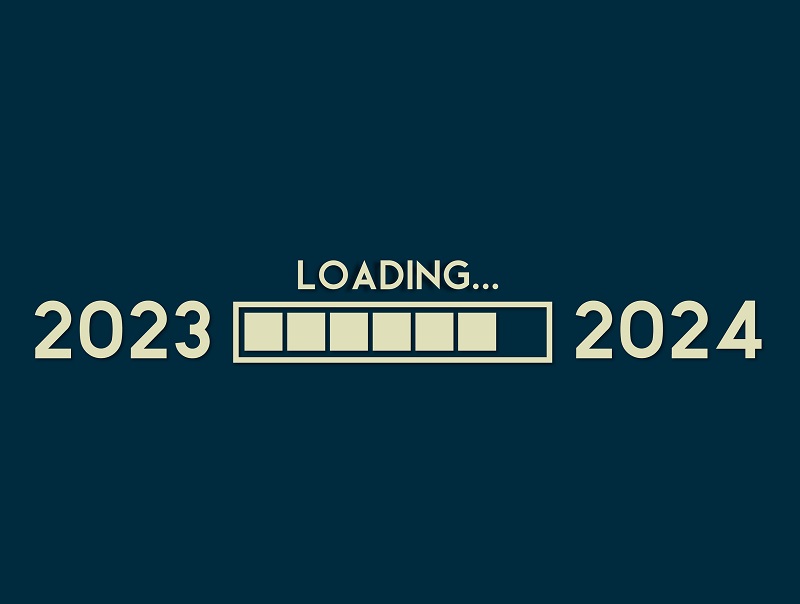September 10, 2009
CGD president Nancy Birdsall urged the United States to exercise leadership at the upcoming G20 Summit in Pittsburgh in a speech today at the Center for Global Development. Birdsall welcomed the emergence of the more representative group of world leaders, which has largely overshadowed the G8, and endorsed the view of major developing country participants that it should become the main steering group for global economic cooperation. She said that the G20, in addition to evaluating progress in addressing the current global financial crisis, needed to look ahead and begin to prepare for the ”crisis next time” by strengthening institutional arrangements for collective action. I had the pleasure of chairing the discussion that followed, with two distinguished discussants kicking it off, Francis Fukuyama, director of the International Development Program at Johns Hopkins SAIS, and Tim Adams, former undersecretary of the U.S. Treasury responsible for policy on international financial issues, including exchange rate policy, G-7 meetings, and IMF and World Bank issues.On climate, Birdsall argued that the G20 work towards a consensus on the institutional arrangements for implementing a climate agreement, because it is a comparatively new issue, for which the institutional arrangements are still unsettled, and because without action in the next few years, irreversible climate change could wipe out much of the development progress of the past, and put future progress, especially in the low-income countries that are not represented in the G-20, at grave risk.
I had the pleasure of chairing the discussion that followed, with two distinguished discussants kicking it off, Francis Fukuyama, director of the International Development Program at Johns Hopkins SAIS, and Tim Adams, former undersecretary of the U.S. Treasury responsible for policy on international financial issues, including exchange rate policy, G-7 meetings, and IMF and World Bank issues.On climate, Birdsall argued that the G20 work towards a consensus on the institutional arrangements for implementing a climate agreement, because it is a comparatively new issue, for which the institutional arrangements are still unsettled, and because without action in the next few years, irreversible climate change could wipe out much of the development progress of the past, and put future progress, especially in the low-income countries that are not represented in the G-20, at grave risk. At present, she said, the rich countries offered poor countries loans and grants. But loans are too often slow to negotiate, and the grants are often insufficient. Insurance-like mechanisms are necessary to help countries manage the greatly increased risks of the 21st century, she said. She offered three examples, drawing on previous CGD work including a book by Guillermo Perry titled “Beyond Lending”:
At present, she said, the rich countries offered poor countries loans and grants. But loans are too often slow to negotiate, and the grants are often insufficient. Insurance-like mechanisms are necessary to help countries manage the greatly increased risks of the 21st century, she said. She offered three examples, drawing on previous CGD work including a book by Guillermo Perry titled “Beyond Lending”:
We don’t yet know what form this crisis will take or when it will hit. We do know that our thoroughly integrated global economy, for all its benefits, is far from risk-free; that the looming threat of climate change creates additional and dangerous risks; and that both of these have special potential for devastating harm to poor people around the world. And we know that the premier global institution of international development cooperation—the World Bank—is poorly designed to meet these challenges.Speaking before a standing-room-only crowd in the main conference room at CGD’s Dupont Circle offices, Birdsall proposed two areas for G20 attention:
- First, the G-20 leaders should pledge to begin working together—well before their next summit in Seoul—on reaching a consensus on the functions and institutional architecture needed to implement a global climate accord—including fresh thinking about the potential role of the World Bank.
- Second, because climate change and globalization have greatly heightened risks for the world’s poor, the G-20 leaders should call on the multilateral development banks to become much more active in offering countries innovative risk management tools, such as insurance against natural disasters and bonds indexed to their terms of trade.
 I had the pleasure of chairing the discussion that followed, with two distinguished discussants kicking it off, Francis Fukuyama, director of the International Development Program at Johns Hopkins SAIS, and Tim Adams, former undersecretary of the U.S. Treasury responsible for policy on international financial issues, including exchange rate policy, G-7 meetings, and IMF and World Bank issues.On climate, Birdsall argued that the G20 work towards a consensus on the institutional arrangements for implementing a climate agreement, because it is a comparatively new issue, for which the institutional arrangements are still unsettled, and because without action in the next few years, irreversible climate change could wipe out much of the development progress of the past, and put future progress, especially in the low-income countries that are not represented in the G-20, at grave risk.
I had the pleasure of chairing the discussion that followed, with two distinguished discussants kicking it off, Francis Fukuyama, director of the International Development Program at Johns Hopkins SAIS, and Tim Adams, former undersecretary of the U.S. Treasury responsible for policy on international financial issues, including exchange rate policy, G-7 meetings, and IMF and World Bank issues.On climate, Birdsall argued that the G20 work towards a consensus on the institutional arrangements for implementing a climate agreement, because it is a comparatively new issue, for which the institutional arrangements are still unsettled, and because without action in the next few years, irreversible climate change could wipe out much of the development progress of the past, and put future progress, especially in the low-income countries that are not represented in the G-20, at grave risk.The ideal institutional arrangement would deliver on these tasks in an effective, efficient and equitable manner. Can existing global institutions do that? Are new institutions required? Is there a middle path that would build upon existing institutions but with new incentives for the new tasks? … The G-20 leaders must think strategically about which functions the world really needs, and allocate them to institutions that can perform them best. Perhaps the conclusion will be that the world needs a new entity with a narrower focus—though personally I doubt it.One approach, she said, would be to establish an entirely new and legally separate wing of the World Bank—with a clear mandate, mostly grant funding and an entirely different governance arrangement with much greater power for developing countries. “Such an entity would be more transparent, legitimate and ultimately more effective,” she said. (See the text of the speech for an explanation of how this could would work.)Birdsall’s second proposal involved the G20 prodding the multilateral development banks, especially the World Bank, to provide a greatly expanded range of risk-management products for poor countries, to help them manage the increased risk arising from both climate change and the highly interconnected global economy.
A rich economy such as the United States is like a powerful ocean liner, resilient in rough weather and choppy seas, its passengers partly insulated from the weather by protective stabilizers. Poor, small economies are like flimsy, heavily laden boats, many packed with passengers, riding precariously low in the water. They are easily swamped by waves—think terms-of-trade shocks, for example—or, as with the financial crisis that started here in the United States, even by the wakes of the giant ocean liners speeding by.
 At present, she said, the rich countries offered poor countries loans and grants. But loans are too often slow to negotiate, and the grants are often insufficient. Insurance-like mechanisms are necessary to help countries manage the greatly increased risks of the 21st century, she said. She offered three examples, drawing on previous CGD work including a book by Guillermo Perry titled “Beyond Lending”:
At present, she said, the rich countries offered poor countries loans and grants. But loans are too often slow to negotiate, and the grants are often insufficient. Insurance-like mechanisms are necessary to help countries manage the greatly increased risks of the 21st century, she said. She offered three examples, drawing on previous CGD work including a book by Guillermo Perry titled “Beyond Lending”:She closed with a call for U.S. leadership, comparing the current unsettled global situation to that which the Allies faced towards the end of World War II when they began the consultations that led to the creation of the United Nations and the Bretton Woods Institutions.
- Global catastrophic reinsurance funds—building on programs such as the World Bank’s weather insurance in the Caribbean—could help to insure governments’ and households’ cash needs in the face of a natural disaster.
- Bonds linked to the terms of trade could enable countries to automatically reduce their debt service payments—that is, the payment they make on the bonds—if they are hit by a sudden price shock, such as a surge in the price of imported oil.
- Global and regional funds that would invest in the domestic bonds of “frontier” countries and firms would reduce the risks associated with foreign-currency-denominated debt in those countries.
The United States was a leader in that process, rejecting the idea that the task of building a better world was too difficult, or the promise too uncertain, to warrant its best efforts. Instead its leaders looked upon the creation of new institutions as an opportunity to shape the future around the world in accord with U.S. interests and values. Today, the United States has a similar opportunity to lead. I believe the institutional arrangements we devise now to address climate change and the new risks that have accompanied globalization will be as important in the coming decades as the UN and Bretton Woods sisters were in the 60 years just past…In Pittsburgh, President Obama has a golden opportunity to match the multilateral, smart-power rhetoric of his recent foreign policy addresses with decisive leadership and active collaboration with G-20 members on matters that will affect the welfare of billions of people.The lively discussion followed, kicked off with thoughtful comments from Frank and Tim (transcripts and a podcast will be available soon). Among the guests were representatives of a dozen embassies, members of the press, U.S. government officials, and the heads of development-oriented NGOs. By the close of the event there were still many people who wanted to speak. I invite them—and any reader who has persevered to the end of this long post—to continue the discussion here!
Disclaimer
CGD blog posts reflect the views of the authors, drawing on prior research and experience in their areas of expertise. CGD is a nonpartisan, independent organization and does not take institutional positions.




